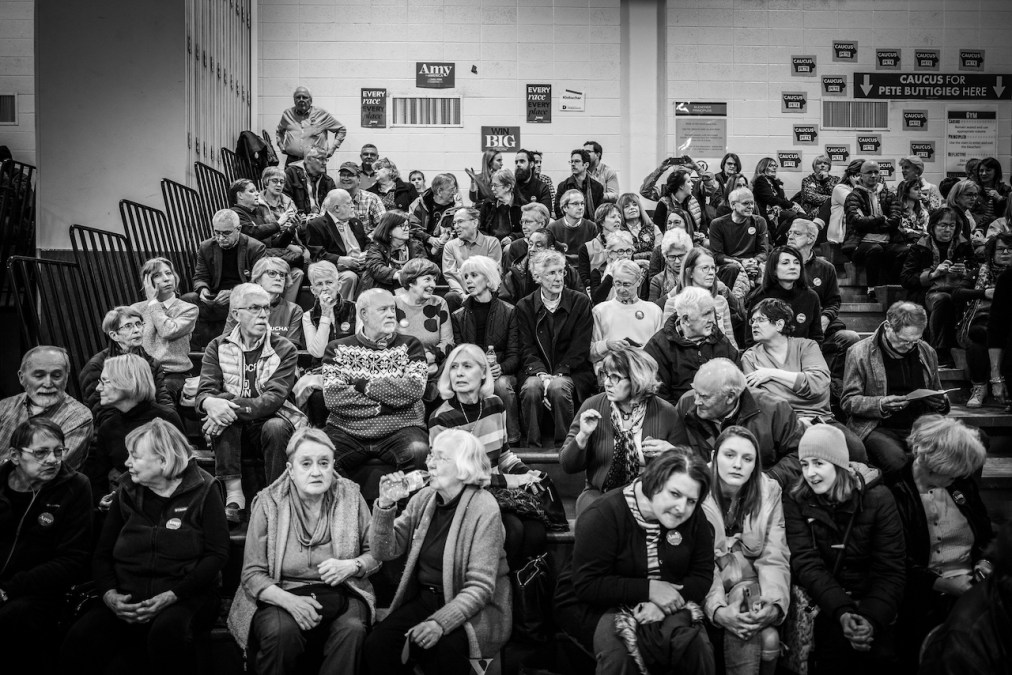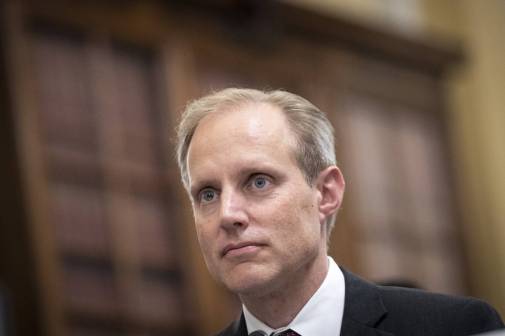After Iowa Dems’ caucus app mess, election officials distance themselves

The meltdown of a new app that Iowa Democrats intended to use to tally the results of their presidential nominating caucuses has famously mucked up the beginning of the race for the party’s presidential nomination. But as the candidates wait for the first batch of results to finally be released Tuesday afternoon, election officials around the country are taking pains to distance a political party’s technological bungling from the work that they do on behalf of state and local governments.
Iowa Democrats headed into their first-in-the-nation caucuses saying the app — designed by a software firm called Shadow Inc. — would help on-the-ground volunteers report results and the complicated math that determines how many delegates each candidate won. But after not releasing caucus results as expected, the party late Monday night said there were “inconsistencies” in how precinct-level results were reported. And since then, several county party leaders have said that they never received any training on the app from either the state party or Shadow.
While caucus-goers’ preferences were recorded on paper, which the Iowa Democrats said Tuesday is being used to verify the data collected by the app, election officials have said this episode may throw a wrench in the public perception of their jobs.
“We have a term we call the ‘cicada voter’,” Dave Bjerke, the elections director in Falls Church, Virginia, told StateScoop, referring to the ground-dwelling insects that only emerge once every several years. “The cicada voter is only going to vote in presidential elections. There’s always elections going on, but the presidential is the Super Bowl of our process.”
‘They aren’t elections’
For infrequent voters who only show up in presidential years, though, images of one state’s preliminary contest going awry could potentially tarnish their confidence in the overall democratic process, Bjerke said.
“The first thing they see is a nomination process for a party that is not at all representative of how we’re going to do things in November,” he said.
Iowa Secretary of State Paul Pate also put out statements reminding the public that his office is not involved in the caucusing process.
“They are run by the political parties,” he said Tuesday morning. “Although the caucuses are the kickoff of the presidential nominating process, they are not elections.”
Judd Choate, the elections director for the state of Colorado, sounded a similar note to Pate’s: “Elections should be run by elections professionals — people who do this work for a living — not political parties,” he wrote in a tweet. “Caucuses are party meetings. They aren’t elections.”
But the failure of an app in a caucus setting has set off another conversation about the role emerging technologies, especially software for mobile devices, can or should play in voting — that instances of those technologies malfunctioning can seed doubts in the democratic process, stoked by individuals or parties with malicious intent.
“We know there’s going to be a lot of disinformation,” Bjerke said. “Bad actors are trying sow distrust in our process. I think there are a lot of people federal, state on down trying to combat it as much as possible.”
According to Vice News, Shadow Inc. was revising and updating its app as late as two days before Monday’s caucuses, practically eliminating any window for it to be vetted and tested before the big night.
“The time to build public trust isn’t on the night of the caucuses after the app failed to deliver,” Chris Deluzio, a cybersecurity expert at the University of Pittsburgh, told StateScoop. “The app’s developer and the Iowa Democratic Party should have been doing that important work with the public for months. They opted for secrecy and a lack of transparency instead — with devastating results.”
The Iowa Democratic Party said Shadow’s app was tested by “independent cybersecurity consultants,” but did not respond to StateScoop’s questions about what entities were involved in that testing. Acting Homeland Security Secretary Chad Wolf told Fox News that the party rebuffed the department’s offer to test the app, though Iowa Democratic Chair Troy Price said Tuesday afternoon he had “no knowledge” of DHS doing so.
‘Disappointing’
Deluzio also said the caucus app mess should serve as an omen amid heightened discussion of internet-based voting, a frequent target of the election-security community’s criticism.
“This is a stark reminder that online voting is just not ready for the real world,” he said. “There’s too much at stake.”
For its part, the Mobile Voting Project, which has promoted pilots of app-based voting in at least six counties and states, most notably West Virginia, sounded off on what happened in Iowa, saying that using an app to tabulate an in-person caucus should not be perceived as mobile voting.
“It’s disappointing to see an election company implement something so haphazardly in such a significant election,” said Sheila Nix, president of Tusk Philanthropies, which funds the Mobile Voting Project. “We know how important it is to test out new technology and train officials, which is why our vendors go to such great lengths to work with jurisdictions to ensure a smooth and successful election.”
Even after the Iowa results are fully counted, the Democrats still have more than 50 individual nominating contests to go. Most are primaries, which means the party will rely on actual government officials to collect and count votes.
“If the Democrats ask us to run a primary, they are going to go through our process,” said Bjerke, the Falls Church elections chief who will help oversee Virginia’s March 3 primary.
He added, insisting he was speaking in jest: “The worst part about the Iowa caucuses is that we’re still talking about the Iowa caucuses.”






